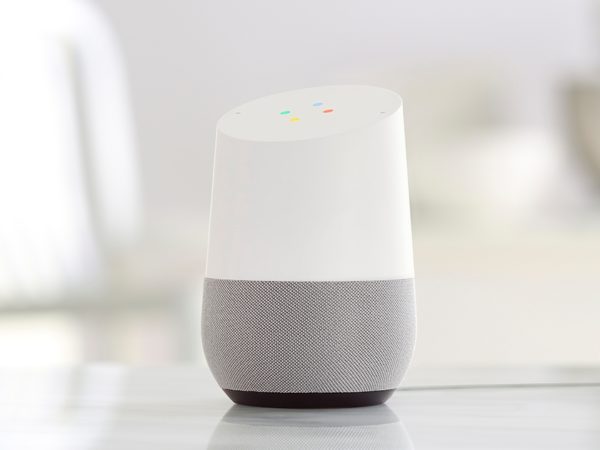
 Google’s smart messaging app, Allo, for Android and iOS devices is now available in French, a move which may speak to a future launch of Google Home, the company’s smart speaker virtual assistant, in Canada.
Google’s smart messaging app, Allo, for Android and iOS devices is now available in French, a move which may speak to a future launch of Google Home, the company’s smart speaker virtual assistant, in Canada.
Smart speakers combine the searching capabilities of voice activated mobile phone assistants like Apple’s Siri and Amazon’s Alexa with the power to integrate all of your home’s connected appliances and technologies, and they’re all the tech rage at the moment, having been labelled this year’s breakthrough consumer technology. But none of the currently available options — from the Amazon Echo and Google Home to offerings from smaller players such as Lenovo and LG — have been officially launched in Canada.
Having to deal with both French and English (but mostly French) seems to be the holdup, but now that Google’s Allo is ready to parlez-vous en français, the transition from mobile phone assistant to home smart speaker is likely to be just around the corner. “We’ve made Assistant be truly French Canadian, customizing the app with local elements that are unique to Quebec,” reads a Google release. “From local celebrities and artists to landmarks and cultural institutions, you can ask the Assistant to answer questions that are specifically relevant to French Canada.”
At the moment, Amazon controls the bulk of the home virtual assistant space, with Echo speakers taking up 70.6 per cent of the market, according to eMarketer. Google Home, which recently launched in the United Kingdom, is a distant second at 23.8 per cent. “Consumers are becoming increasingly comfortable with the technology, which is driving engagement,” said Martín Utreras, vice president of forecasting at eMarketer. “As prices decrease and functionality increases, consumers are finding more reasons to adopt these devices.”
Microsoft has more recently jumped into the home smart speaker game, partnering up its Cortana virtual assistant with a speaker made by Harman Kardon, with a launch expected for this fall. The move is seen as an attempt to capitalize on one of the main drawbacks to the home assistants currently on offer: poor speaker quality. While consumers can get their home assistants to do a range of jobs, from checking the weather and giving news updates to turning on lights and adjusting the thermostat, it’s playing music from on-line streaming services that appears to be the big draw.
The growth in smart home technologies, virtual assistants and connected devices is all due to recent advances in AI and machine learning, which have taken the clunky, often frustrating experiences of the past, where talking into your phone’s virtual system was the last thing you felt like doing, to the current models which boast much better speech recognition and AI-assisted platforms.
One company conspicuous in its absence, however, is Apple which has to this point stayed away from joining the home smart speaker market. “Apple is dropping behind in this race,” says Werner Goertz from industry analysts Gartner, to the Guardian. Goertz says that it risks being “late to market unless it can come up with substantial product announcements by the end of this year”.
Leave a Reply
You must be logged in to post a comment.





 Share
Share Tweet
Tweet Share
Share




Comment